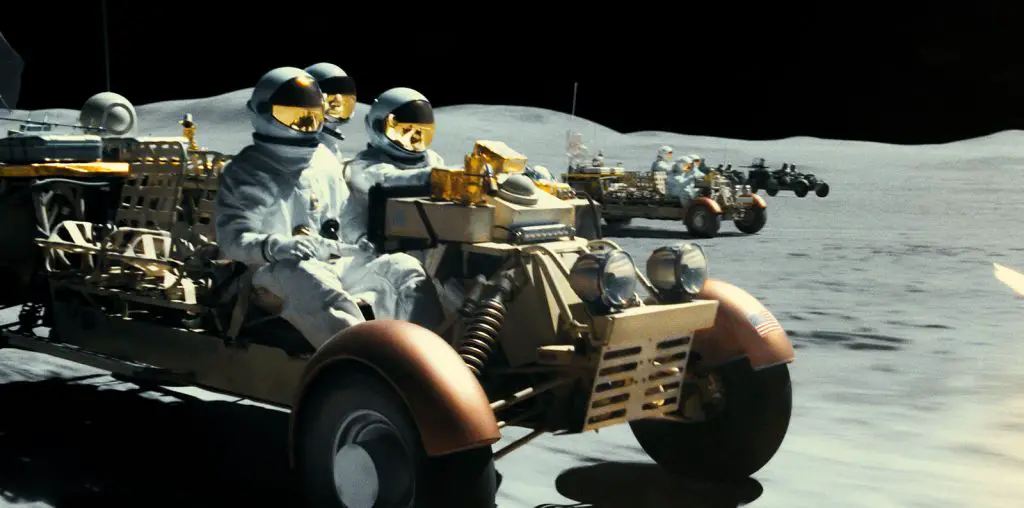
In Ad Astra, Brad Pitt plays astronaut Roy McBride, the son of Clifford McBride (Tommy Lee Jones) who disappeared 16 years earlier on a mission to Neptune. When mysterious explosions start to rattle the solar system, Space Command starts to suspect that Clifford might still be alive and dispatches Roy to journey through the solar system to help get to the bottom of it. It turns out the solar system is a pretty dangerous place, filled with pirates, dangerous animals, gun-toting humans, and psychological trials.
Aside from being a film critic, I’m also a professional astronomer, TV host, and science advisor for books, comic books, TV, and movies. A movie like Ad Astra puts all my skills to the test. I wrote an article about the science in the movie over at Gizmodo, so if you want a detailed breakdown of the science, check it out. And, along with James Darling I’ve made a Science Vs. Cinema video about Ad Astra, which I’m excited to debut here! Warning, in the video and in this review I’m going to get into spoiler territory.
In this article, I’ll focus instead more on the film’s merits or failings itself. Many people think that if the science is wrong, I just won’t like the movie, or if the science is right, I will. That’s just not true. Movies like Gravity get plenty of the science wrong, as I explained here, though I still love it. And an example of a movie that gets all the details of being an astronaut right is Proxima, which bored me to death. Instead, my principle is that if you need to bend a few rules to tell a better story, that’s fine. Just don’t get things wrong because you don’t know what you’re talking about. And by all means, go beyond what we know now — that’s what science fiction is all about! Two great examples of this are The Martian and Arrival — in our Science Vs Cinema videos about them we talked to both scientists and filmmakers about the tradeoffs you have to make between getting the story and the science just right so that both work.
In the Ad Astra universe, humans have started to settle the solar system, and have finally elevated the idea of searching for alien life to one of their top priorities. That is a great concept for a movie! Can you imagine seeing this interplanetary version of humanity — one that has adapted to life outside Earth, is curious about the cosmos, and is thoughtful about our place in the universe?


I found the premise that the anti-matter beams were focused on earth ridiculous. If this was really a problem, wouldn’t TLJones have self-destructed or at least sent a warning to earth about the problem. If the anti-matter was the propulsion system of the Neptune mission, wouldn’t TLJones try to continue the mission to the stars after he killed the rest of the crew? This doesn’t seem to be in the plot. The data that is passed on to Brad Pitt seems very brief and inconclusive: Images of planets are not enough- what about traces of life, even microbial? What about a human compatible planet? Are they only looking for intelligent life, instead of ANY extraterrestrial life? Here’s a better ending: the destruction of the Neptune ship causes a mini-black hole or space-worm that sucks Brad Pitt outward at near light speed. Thus, he becomes the real star explorer and will try to reach the next planet, though probably to never return. This was sort of the ending of Mission to Mars, where Gary Sinese decides to ride the free trip to the alien destination, rather than return to earth. Don’t know if the science was any good on that film, but I found it much more satisfying. Remember the madness of the remaining astronaut on Mars who was surviving on growing plants (Don Cheadle)? That was a great scene which showed the fragility of human nature on another planet.